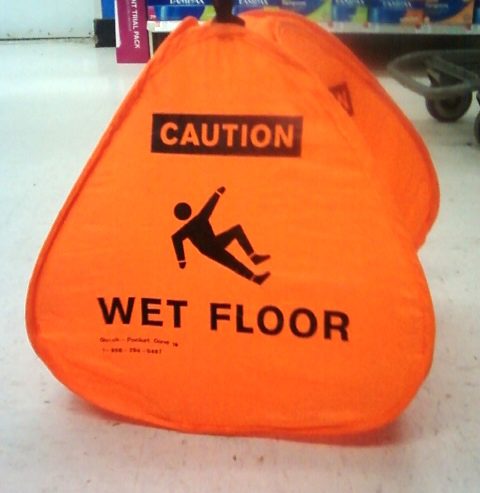
Slip and fall accidents never present ‘open and shut’ cases.
The person injured must have facts that, when applied to premises liability law, show that the owner of the property where the injury occurred either did something they should not have done, or failed to do something that they should have done.
Only one or the other allows a court or jury to enter a judgment.
You just want to settle and not go to court?
Insurance companies never “just settle” a case unless they see that the evidence is there, or will be there at trial.
Slip and Fall Liability Theory
Personal injury attorneys must develop a theory of liability. For example, on a rainy day if a customer of a store walks in and slips and falls on rain water close to the door, cases have held no liability. However, where an old leaky cooling unit drips water on the floor, managers are aware of the hazard and fail to take reasonable steps to reduce the danger there is a better case. This is one example of the type of liability theory required in such cases. Injuries are only compensated where negligence is established.
Slip and fall accidents or trip and fall cases have other perils. Property owners often argue that if they should have seen and done something about a hazard that caused injury, then the person that was injured should have seen it and avoided it. So, the personal injury attorney must establish that the property owner or manager was in a better position to foresee that there was a peril and that with relatively low cost in relation to the potential danger, could have eliminated the hazard.
Slip and Fall Accidents – Case Results
Slip and fall accidents have actually brought substantial results for a number of cases handled by our office. However, fall-down-injury cases are never the ‘slam dunk’ that some think. Establishment of a liability theory supported by the facts and premises liability law has to happen early in the case.
Massachusetts and New Hampshire are the states in which I am a licensed attorney. While the above general summary is relatively universal, the intricacies of law and procedure vary widely from state to state. For all of the above reasons, no such case should be pursued without an experienced personal injury attorney.
Views: 12




